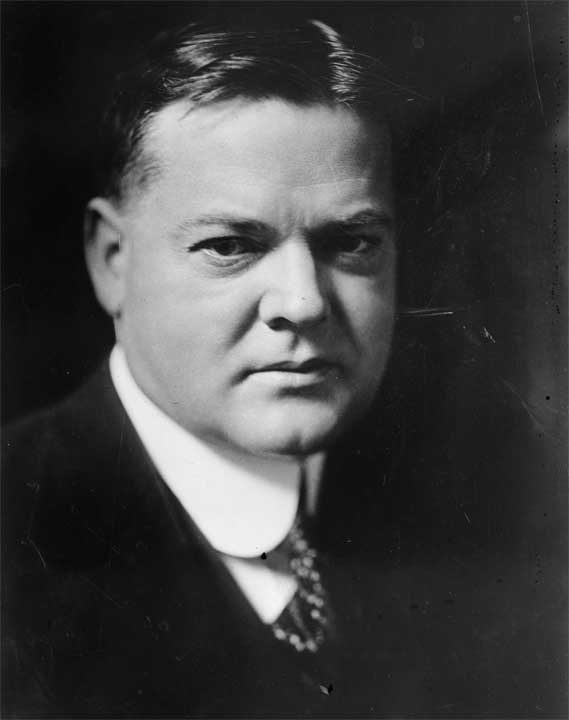Herbert Hoover
1874- 1964
American Politician

Herbert Hoover was born in West Branch, Iowa. Hoover almost died at the age of two from croup. When young Hoover was six, his father died. His mother died when he was nine and from that time on, he lived with various relatives. He ended up living with his uncle, a doctor in Oregon.
Hoover received a basic education in public schools but never graduated high school. He developed an interest in engineering, and applied in 1891 to Stanford. At 17, he was the youngest member of the freshman class. Upon graduating from Stanford, Hoover decided to be a mining engineer.
From 1896 to 1914, Hoover worked as a mining engineer. He spent various periods of time working in Australia and China. He made a great deal of money in one of the Australian mines and even started his own mining consulting firm. By 1914 he was thought to have holdings of $4 million.
During World War I, Hoover gained an international reputation heading relief work in Europe. In 1919, he founded the Hoover Institute on War, Revolution and Peace at Stanford.
From 1921 to 1928, Hoover served as the Secretary of Commerce. In an Administration that was noted for its inaction, Hoover was a surprisingly activist Secretary of Treasury. He expanded the Bureau of Standards, and increased the data collected by the Census Bureau. He authorized the Bureau of Fisheries to improve the stock of the nation's fisheries. Hoover undertook the regulation of the nations airwaves, and established the Aeronautics Board to encourage the development of commercial aviation. He was a major supporter of the construction of what was later known as the Hoover Dam, and supported the St. Lawrence Seaway.
Hoover, who had been a great American success story until his Presidency, was elected on his promise of continued prosperity for America. Unfortunately, almost immediately upon his arrival in office, Hoover was faced with the stock market crash that begat the Great Depression. The crash soon resulted in large-scale bank failures which, in turn, resulted in business collapse on a scale unprecedented in history. Before long, there were 13 million unemployed Americans. Hoover was torn between two conflicting instincts, and two opposing sets of advice. On the one hand, his individualist tendencies, and his belief in the business system, tended to make him opposed to large-scale government relief. On the other hand, his genuine compassion for those in trouble made him want to do something to relieve the mass poverty. Finally, and to little avail, he picked a middle road that included limited loans and other forms of assistance. The country slid deeper into a depression.
